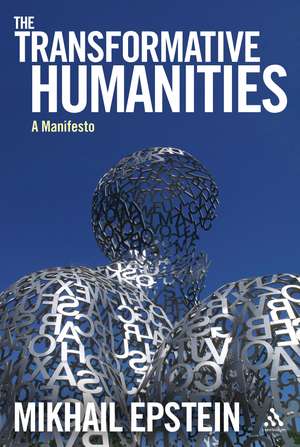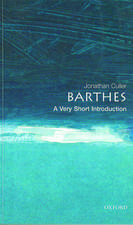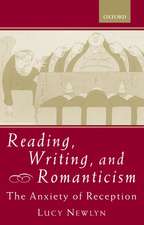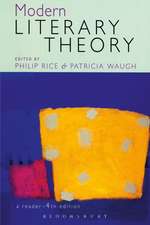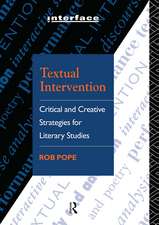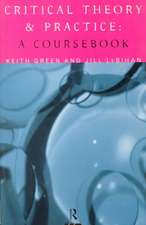The Transformative Humanities: A Manifesto
Editat de Professor Igor E. Klyukanov Autor Professor Mikhail Epsteinen Limba Engleză Paperback – 14 noi 2012
| Toate formatele și edițiile | Preț | Express |
|---|---|---|
| Paperback (1) | 260.73 lei 6-8 săpt. | |
| Bloomsbury Publishing – 14 noi 2012 | 260.73 lei 6-8 săpt. | |
| Hardback (1) | 834.70 lei 6-8 săpt. | |
| Bloomsbury Publishing – 14 noi 2012 | 834.70 lei 6-8 săpt. |
Preț: 260.73 lei
Preț vechi: 297.08 lei
-12% Nou
Puncte Express: 391
Preț estimativ în valută:
49.89€ • 52.22$ • 41.52£
49.89€ • 52.22$ • 41.52£
Carte tipărită la comandă
Livrare economică 31 martie-14 aprilie
Preluare comenzi: 021 569.72.76
Specificații
ISBN-13: 9781441155078
ISBN-10: 1441155074
Pagini: 272
Dimensiuni: 150 x 234 x 30 mm
Greutate: 0.52 kg
Ediția:New.
Editura: Bloomsbury Publishing
Colecția Bloomsbury Academic
Locul publicării:New York, United States
ISBN-10: 1441155074
Pagini: 272
Dimensiuni: 150 x 234 x 30 mm
Greutate: 0.52 kg
Ediția:New.
Editura: Bloomsbury Publishing
Colecția Bloomsbury Academic
Locul publicării:New York, United States
Caracteristici
A strident affirmation of the potential for the humanities to affect practical change.
Notă biografică
Mikhail Epstein is Samuel Candler Dobbs Professor of Cultural Theory and Russian Literature at Emory University, USA, and Professor of Russian and Cultural Theory at Durham University, UK. He has authored 20 books and approximately 600 essays and articles, translated into 16 languages. Professor Epstein has won national and international awards, including The Andrei Bely Prize (S.-Petersburg, 1991); The Social Innovations Award 1995 from the Institute for Social Inventions (London); the International Essay Contest set up by Lettre International and Weimar - Cultural City of Europe, 1999; and The Liberty Prize, awarded annually for "the outstanding contribution to the development of Russian - U.S. cultural relations" (New York, 2000).Editor and Translator: IIgor E. Klyukanov is Professor of Communication Studies at Eastern Washington University. He has authored more than 100 articles, book chapters and books in communication theory, semiotics, translation studies, general linguistics, and intercultural communication. His works have been published in U.S., Russia, England, Spain, Costa Rica, Serbia, Bulgaria, India and Morocco. He served as an associate editor of The American Journal of Semiotics and is the founding editor of the Russian Journal of Communication. Author of Foreword: Caryl Emerson is A. Watson Armour III University Professor of Slavic Languages and Literatures, and Professor of Comparative Literature, at Princeton University, USA.
Cuprins
AcknowledgmentsForeword, by Caryl Emerson (Princeton University)Introduction Part One. An Open FutureChapter 1. From Post- to Proto-: Toward a New Prefix in Cultural VocabularyChapter 2. Chronocide: A Prologue to the Resurrection of TimeChapter 3. Mikhail Bakhtin and the Future of the Humanities Part Two. Humans and TextsChapter 4. Reconfigurations of TextualityChapter 5. " ". Ecophilogy: Text and its EnvironmentChapter 6. Semiurgy: From Language Analysis to Language Synthesis Chapter 7. Scriptorics: An Introduction to the Anthropology and Personology of Writing Part Three. Humans and MachinesChapter 8. The Fate of the Human in the Posthuman AgeChapter 9. The Art of World-Making and the New Vocation for MetaphysicsChapter 10. Information Trauma and the Evolution of the Human SpeciesChapter 11. Horrology: The Study of Civilization in Fear of Itself Part Four. Humans and HumansChapter 12. Universics: From Relativism to Critical UniversalityChapter 13. Micronics: The Study of Small ThingsChapter 14. From Body to Self: What Is It Like To Be What You Are?Chapter 15. Differential Ethics: From the Golden Rule to the Diamond Rule Part Five. The Future of Wisdom. Creative TheoryChapter 16. What Is 'The Interesting?' Chapter 17. Philosophy's Return to WisdomChapter 18. Logos and Sophia: Sophian Disciplines Chapter 19. The Philosophy of the Possible and the Possibilities of PhilosophyChapter 20. The Mass of Knowledge and the Energy of Thinking In Place of a Conclusion: A New Introduction to Future Thinking Glossary ReferencesIndex
Recenzii
Summing Up: Recommended. Upper-division undergraduates through faculty; general readers.
Mikhail Epstein's The Transformative Humanities is a critical manifesto for our times. The humanities, denigrated, underfunded, abandoned, and increasingly seen as irrelevant, are here rethought and reordered. Not a claim for a more economically viable or culturally more relevant form of the humanities; not an argument that states we need the humanities to make better citizens or more humane professionals, Epstein looks at the core of the humanities and sees its vitality and strength undiminished beneath layers of disciplinary morbidity and administrative pandering. A book that ALL humanists need to read to understand the problems and the advantages of the humanities in the 21st century.
An unforeseen boon of the 1989-91 revolutions in the Soviet bloc has been the re-invigoration of Western intellectual life. Eastern European thinkers encountered with fresh eyes, and much unease, the theories and attitudes that arose in a Paris-dominated West from the heyday of Sartre to that of Badiou. Among the most significant and startling contributions since '89 have come to us from Mikhail Epstein, who's been setting thought experiments in motion since the time of Perestroika. Emerging from the Soviet bubble to take the measure of postmodernism, the first questions that Epstein posed were: Why post-? Why not proto-? His concern ever since has been to redirect humanists from self-pity toward 'inventorship.' 'Perhaps,' as he writes in The Transformative Humanities, 'twenty-first century society, and conceivably even academe itself, are turning away from the humanities because in the twentieth century, and especially in the second half, the humanities turned away from humans?' The task he has set himself is no less than to invent concepts, reinvent attitudes, and engineer a technics that will render the humanities human at last.
It is widely recognized that we are in the midst of a crisis in how universities are organized, the ends they serve, and the place they hold in national life. The humanities are at the epicenter of changes now taking place. Mikhail Epstein is uniquely qualified to grasp the complex nature of the current dilemma, and more importantly, to provide a blueprint for the future that is both visionary and realistic. He is a thinker/activist who was tried in the crucible of late Soviet social, economic, and institutional chaos. He now brings the skills he developed in that historic moment of change to bear on our own. In an age in which a tsunami of sheer data threatens to overwhelm our capacity to make sense of it, Epstein's revolutionary project demonstrates how wisdom can triumph over brute information. His manifesto is one of the best informed, and most compelling arguments I know for education that is still centered on how to be human.
The Transformative Humanities will be, for many scholars, a jump-start to critical inquiry across literary studies and philosophy alike.
Mikhail Epstein's The Transformative Humanities is a critical manifesto for our times. The humanities, denigrated, underfunded, abandoned, and increasingly seen as irrelevant, are here rethought and reordered. Not a claim for a more economically viable or culturally more relevant form of the humanities; not an argument that states we need the humanities to make better citizens or more humane professionals, Epstein looks at the core of the humanities and sees its vitality and strength undiminished beneath layers of disciplinary morbidity and administrative pandering. A book that ALL humanists need to read to understand the problems and the advantages of the humanities in the 21st century.
An unforeseen boon of the 1989-91 revolutions in the Soviet bloc has been the re-invigoration of Western intellectual life. Eastern European thinkers encountered with fresh eyes, and much unease, the theories and attitudes that arose in a Paris-dominated West from the heyday of Sartre to that of Badiou. Among the most significant and startling contributions since '89 have come to us from Mikhail Epstein, who's been setting thought experiments in motion since the time of Perestroika. Emerging from the Soviet bubble to take the measure of postmodernism, the first questions that Epstein posed were: Why post-? Why not proto-? His concern ever since has been to redirect humanists from self-pity toward 'inventorship.' 'Perhaps,' as he writes in The Transformative Humanities, 'twenty-first century society, and conceivably even academe itself, are turning away from the humanities because in the twentieth century, and especially in the second half, the humanities turned away from humans?' The task he has set himself is no less than to invent concepts, reinvent attitudes, and engineer a technics that will render the humanities human at last.
It is widely recognized that we are in the midst of a crisis in how universities are organized, the ends they serve, and the place they hold in national life. The humanities are at the epicenter of changes now taking place. Mikhail Epstein is uniquely qualified to grasp the complex nature of the current dilemma, and more importantly, to provide a blueprint for the future that is both visionary and realistic. He is a thinker/activist who was tried in the crucible of late Soviet social, economic, and institutional chaos. He now brings the skills he developed in that historic moment of change to bear on our own. In an age in which a tsunami of sheer data threatens to overwhelm our capacity to make sense of it, Epstein's revolutionary project demonstrates how wisdom can triumph over brute information. His manifesto is one of the best informed, and most compelling arguments I know for education that is still centered on how to be human.
The Transformative Humanities will be, for many scholars, a jump-start to critical inquiry across literary studies and philosophy alike.
Descriere
Distinguished scholar offers a re-assessment of the role of the humanities and advocates their constructive potential for the society and intellectual culture of the future.
